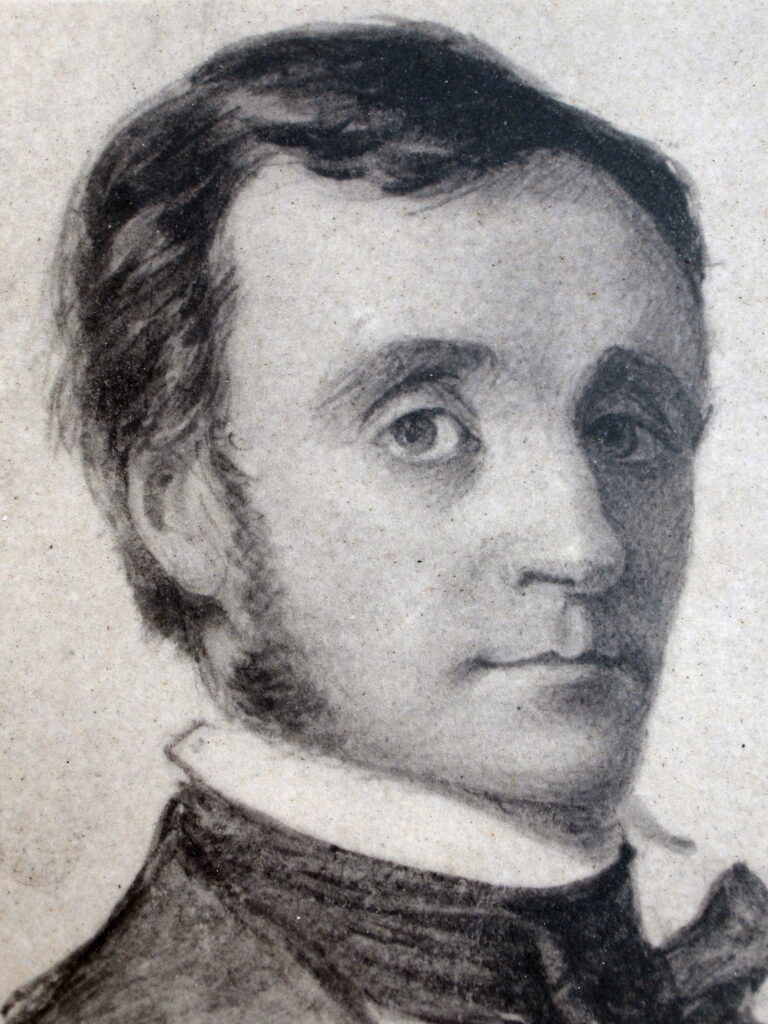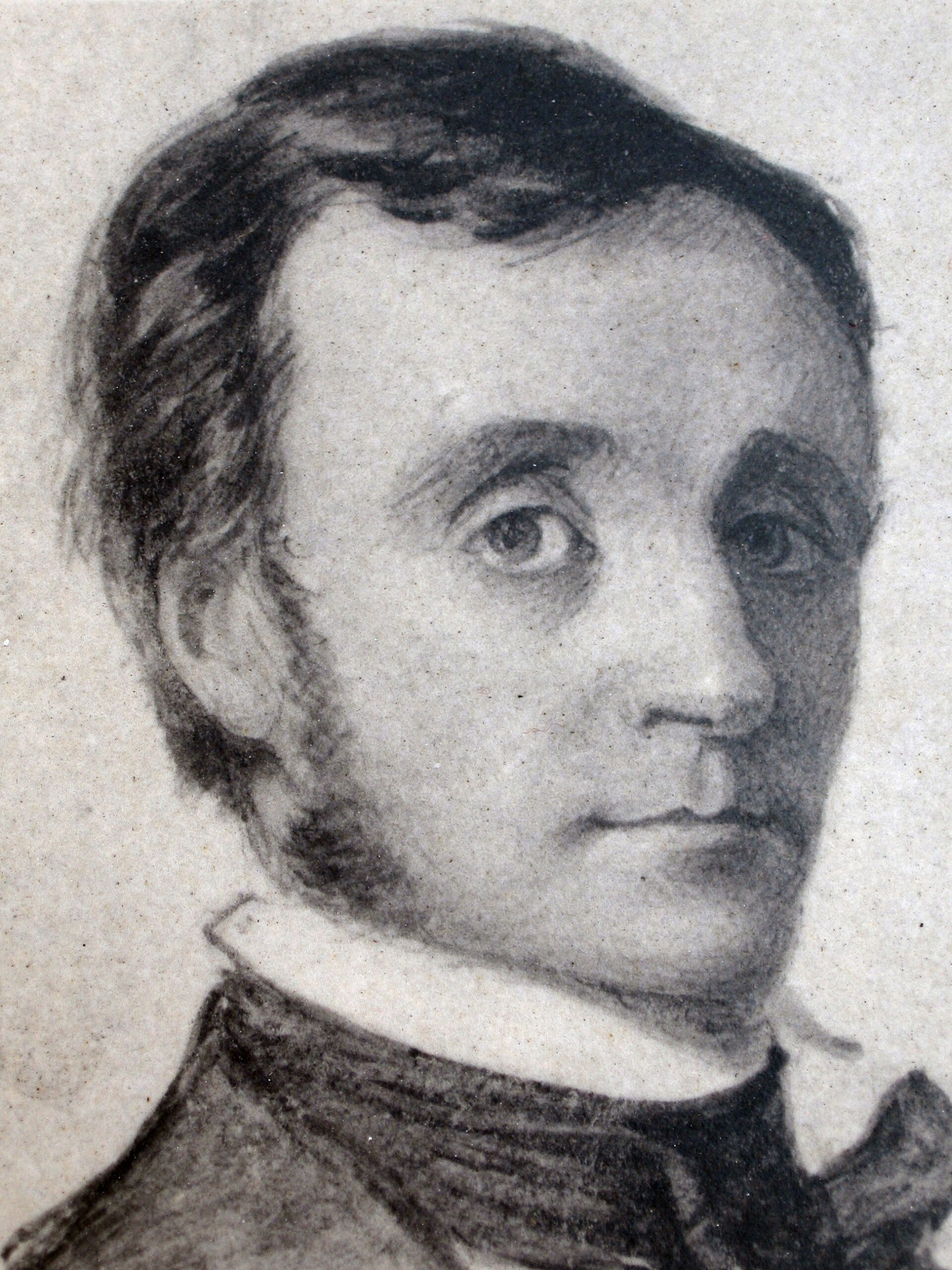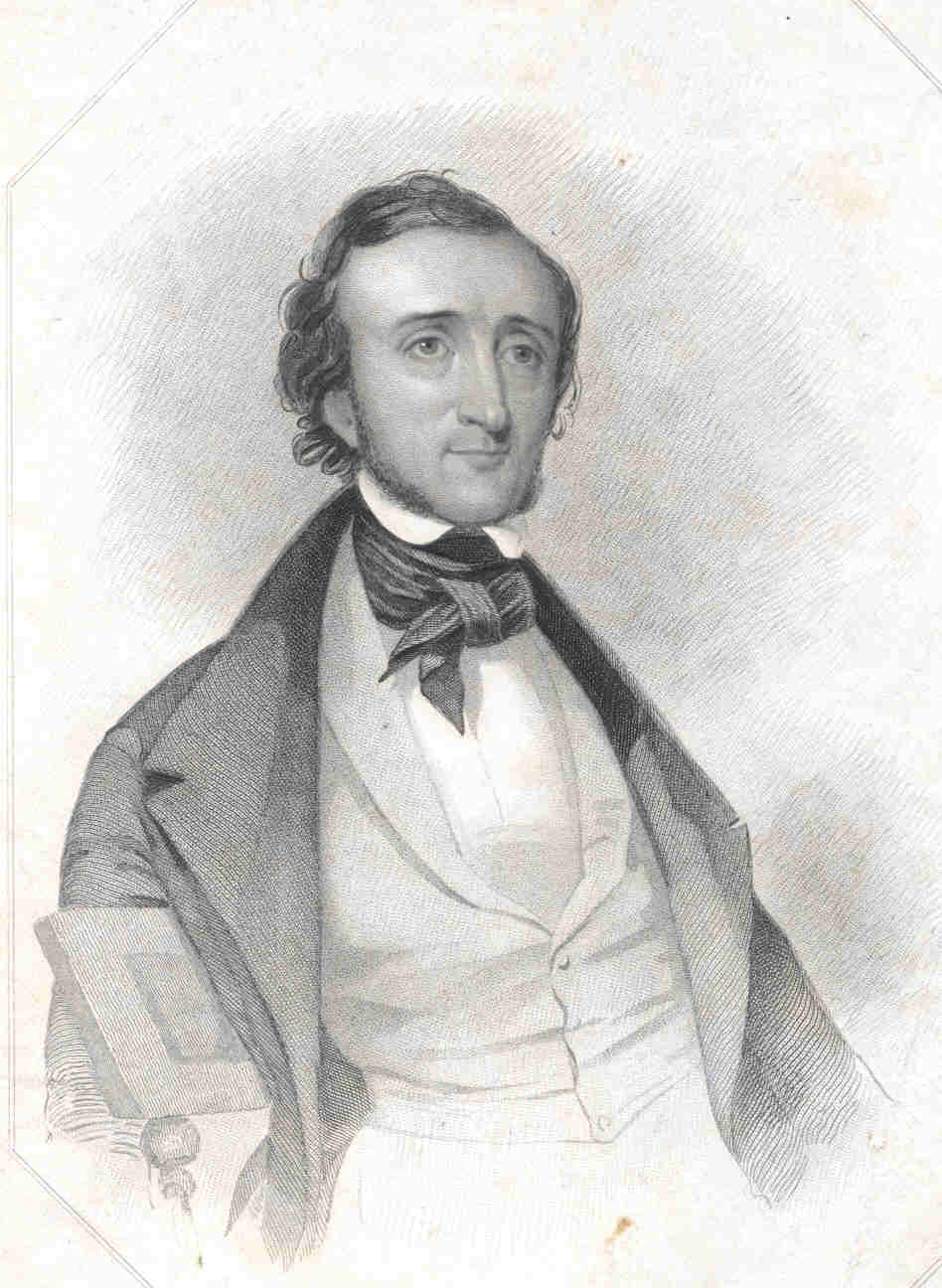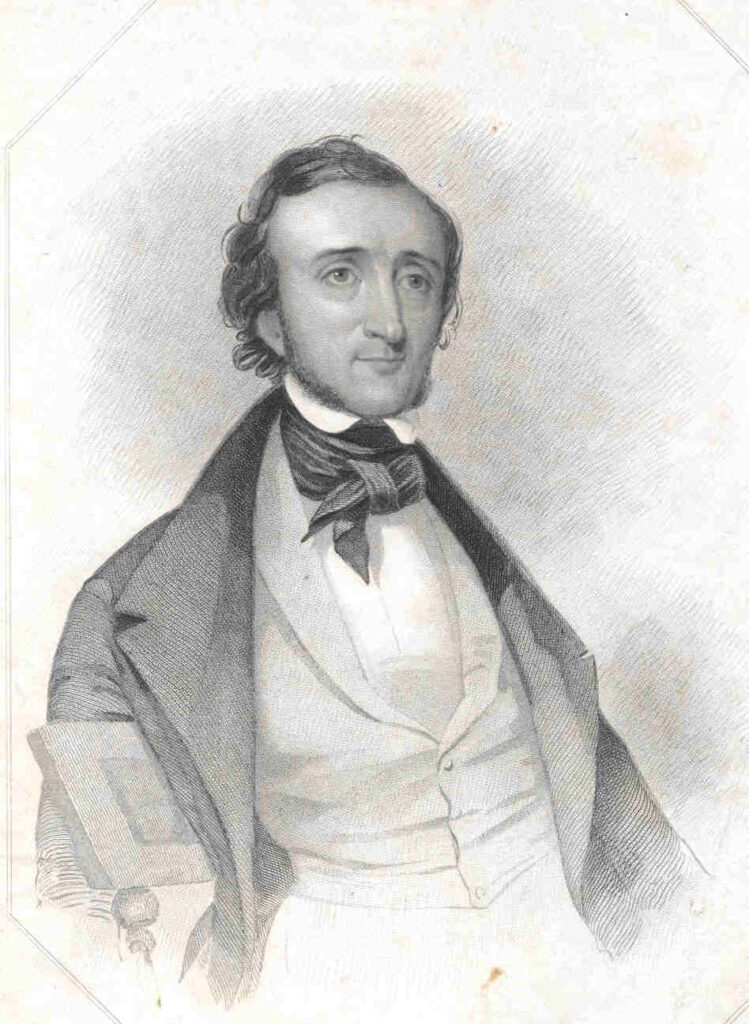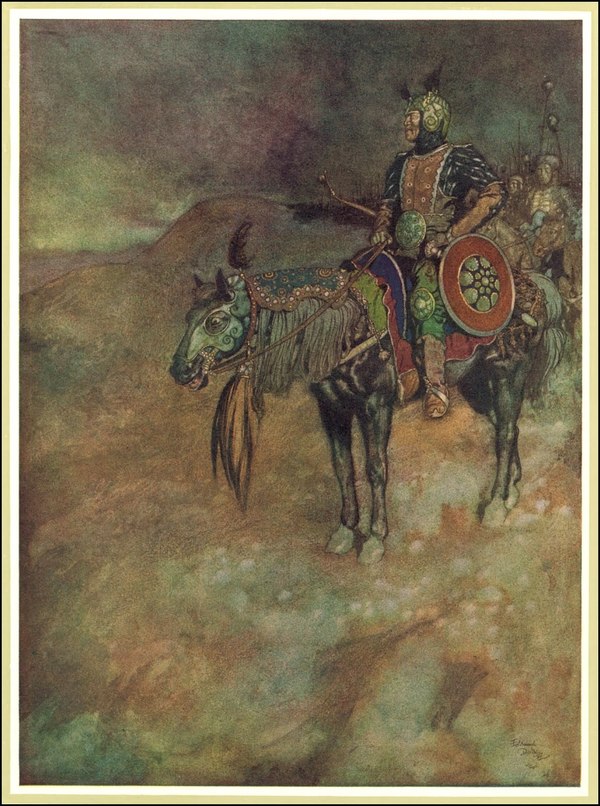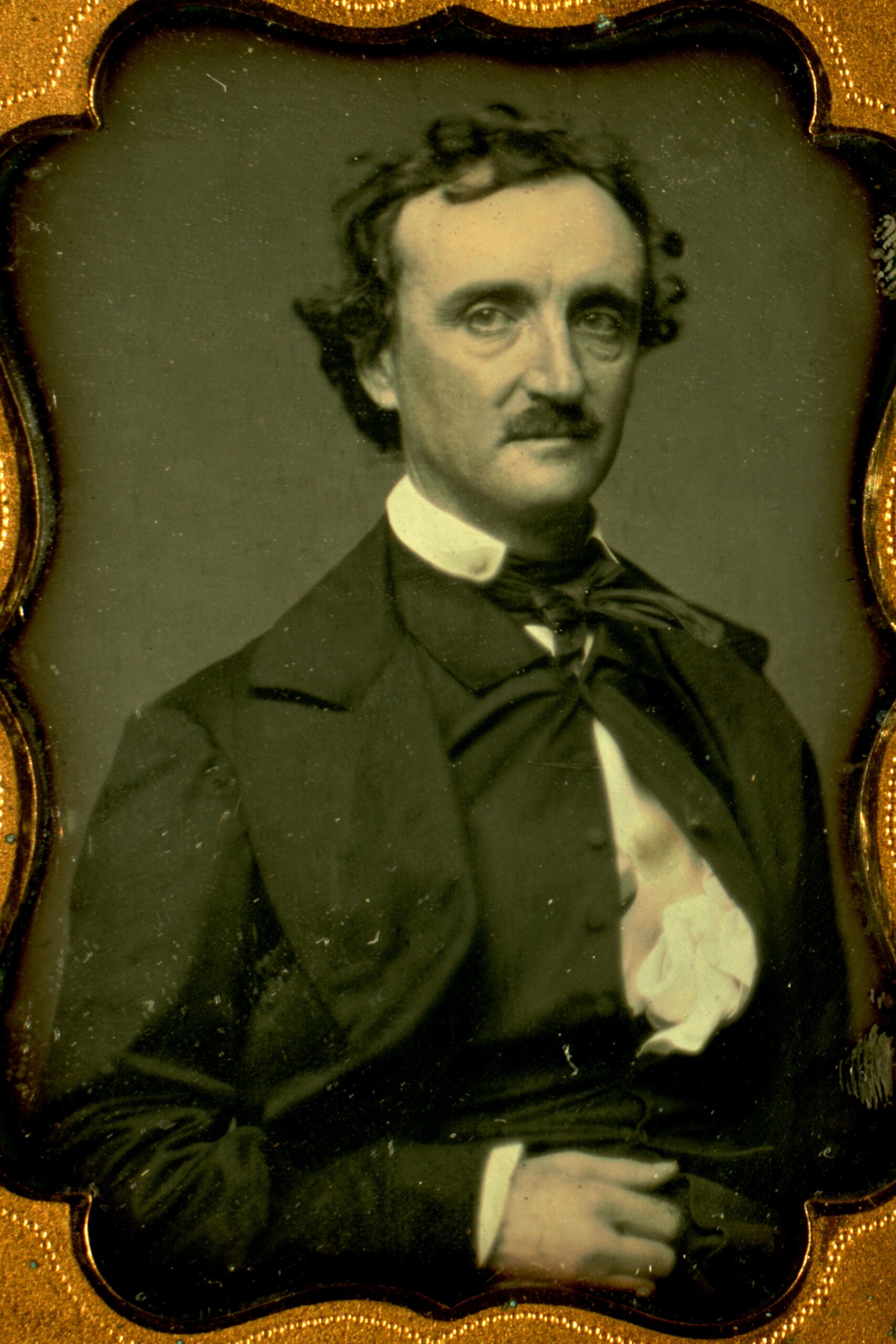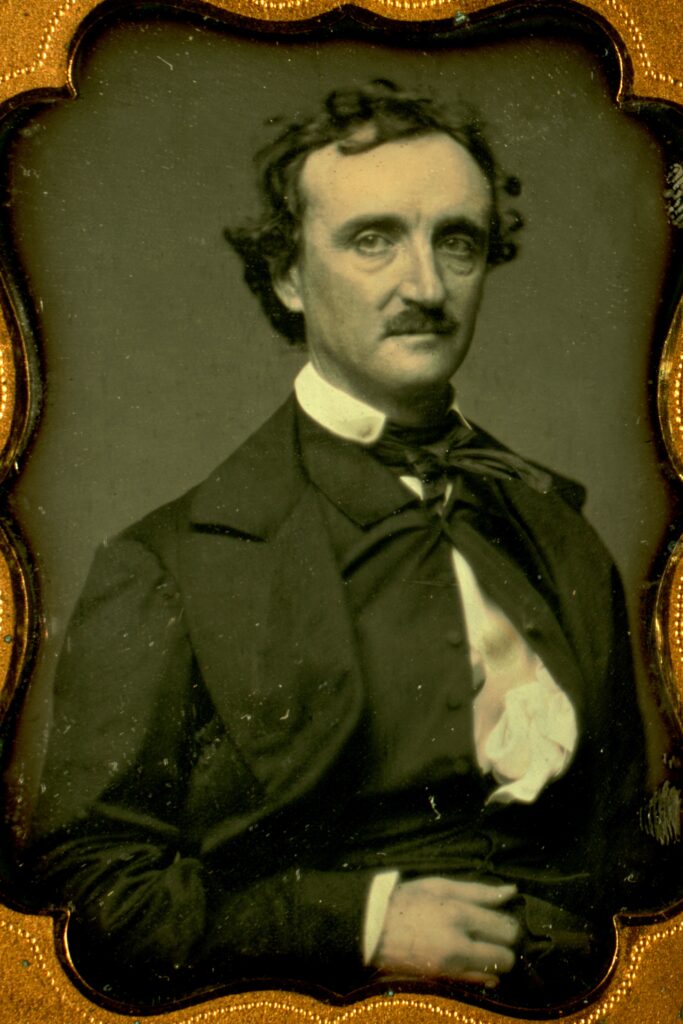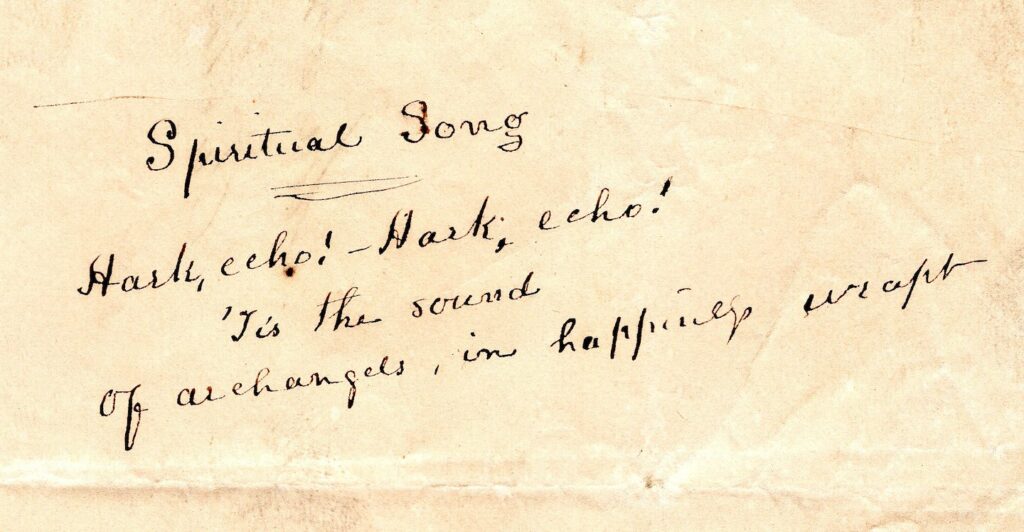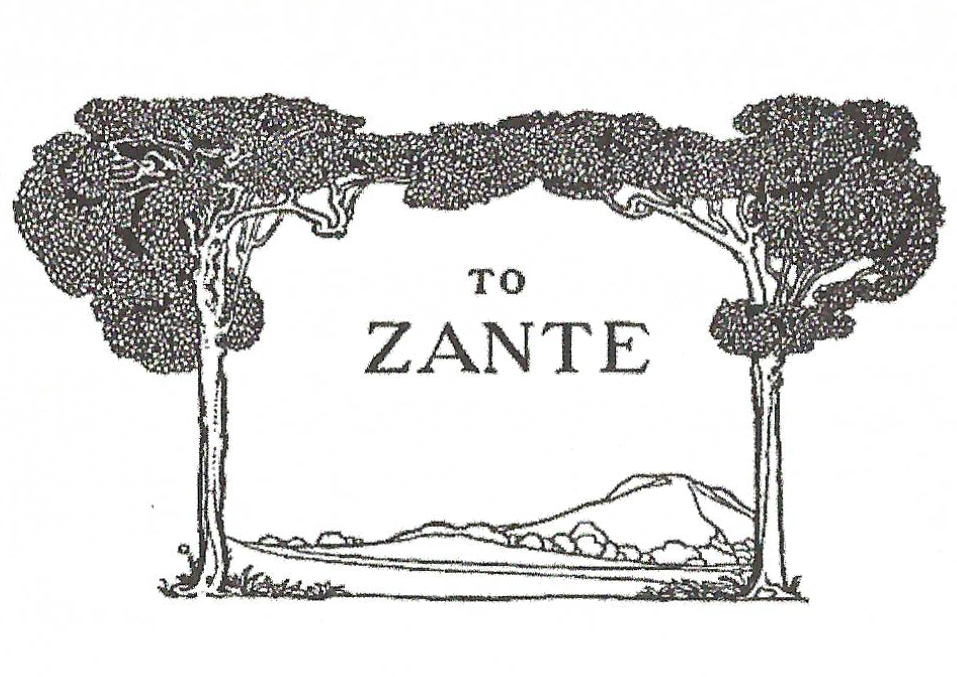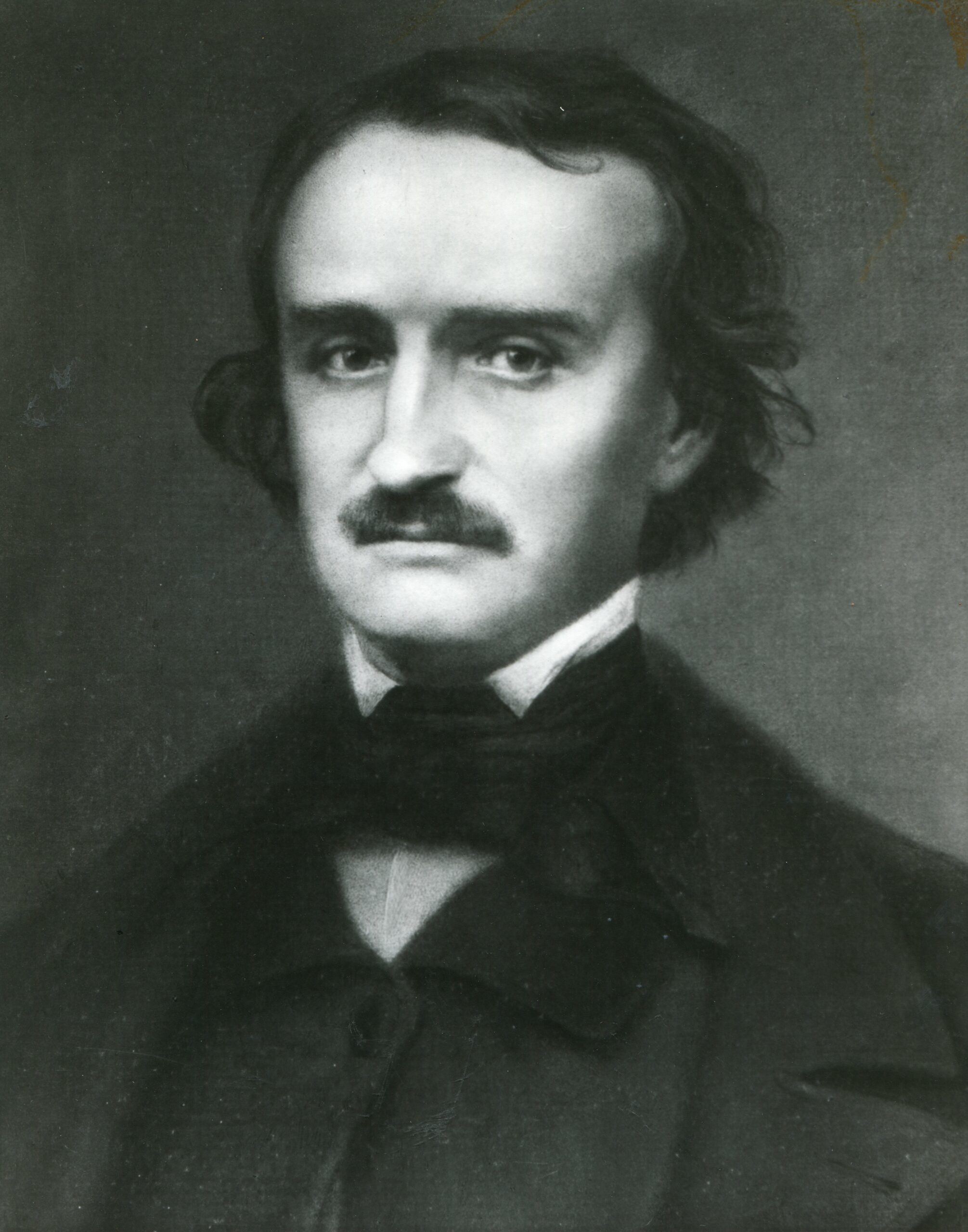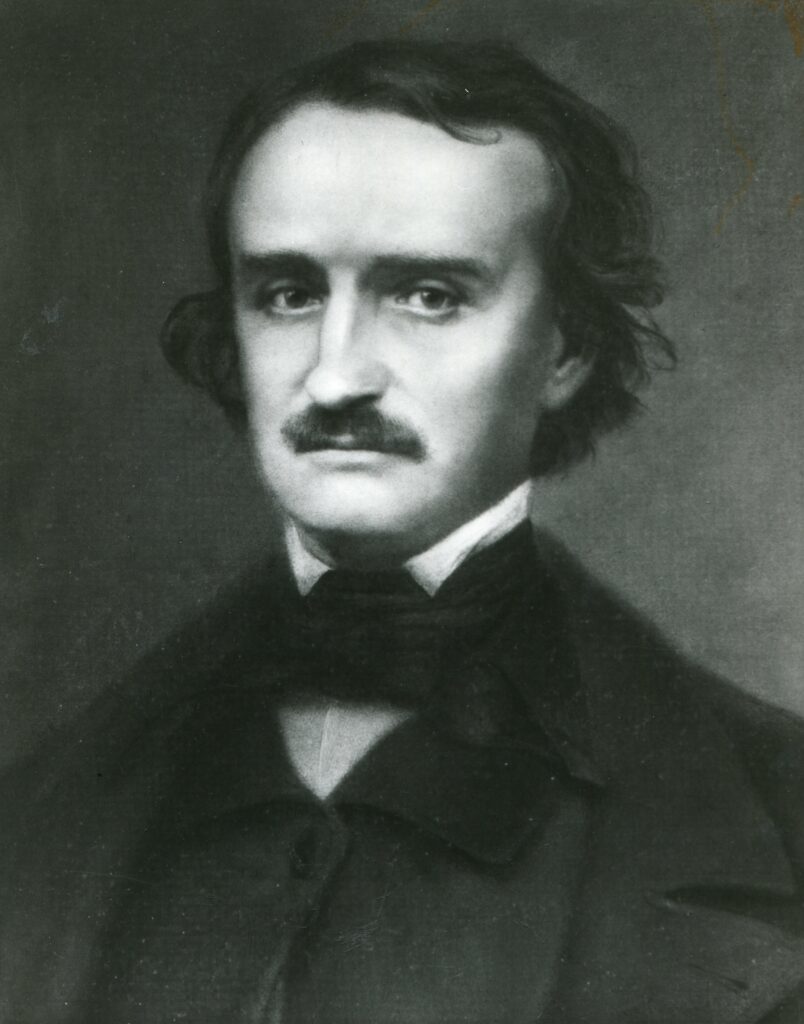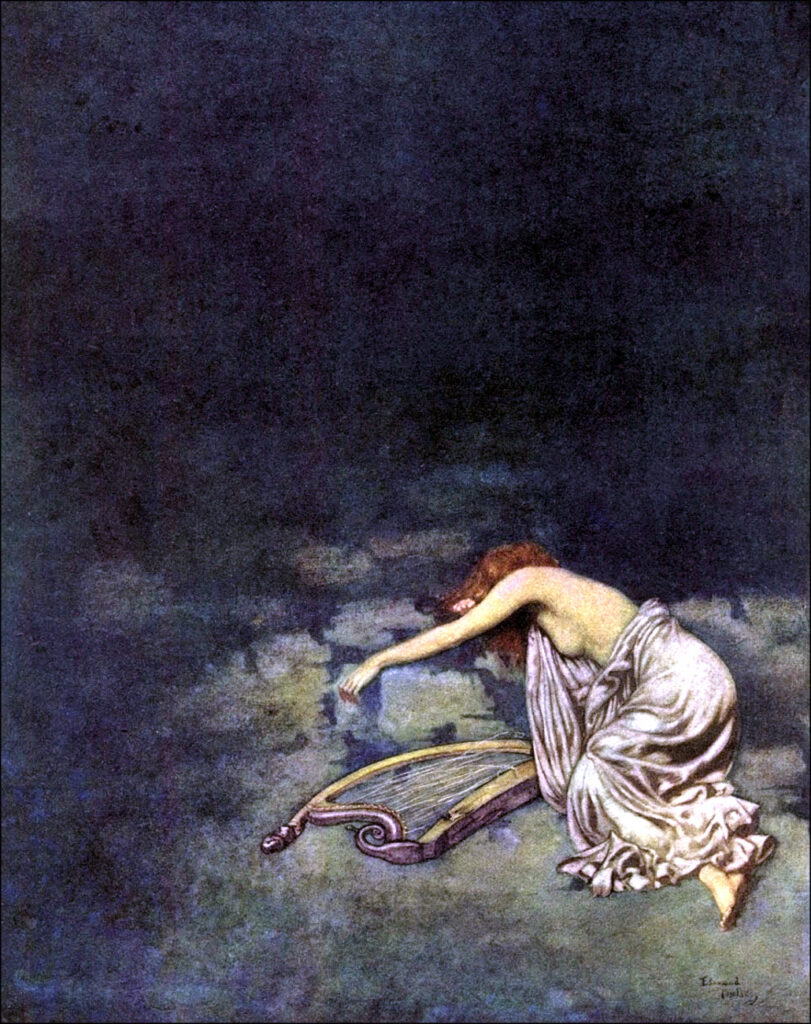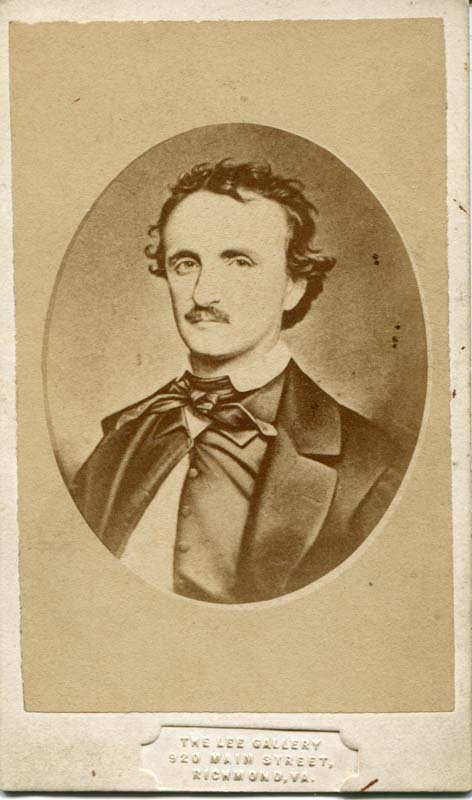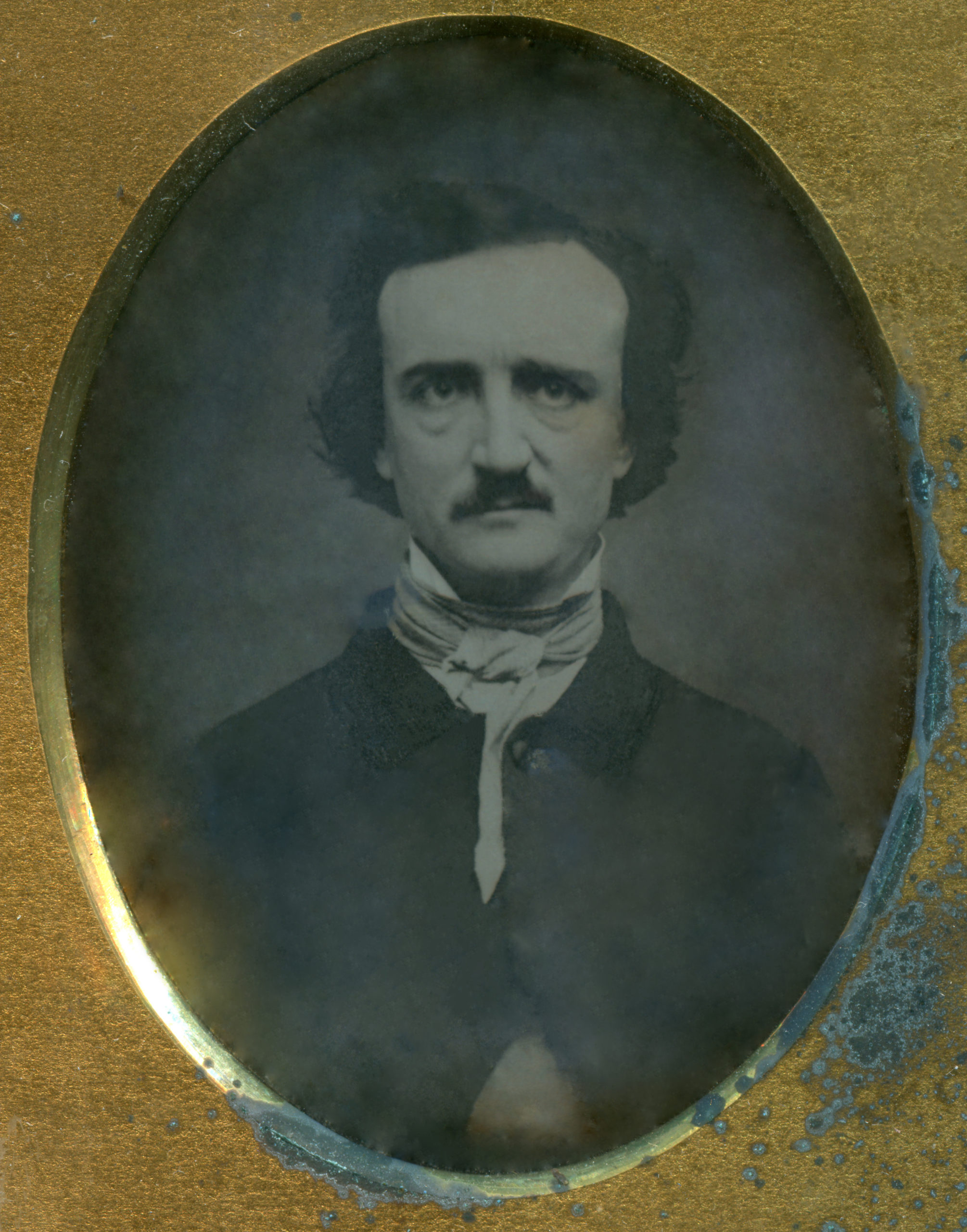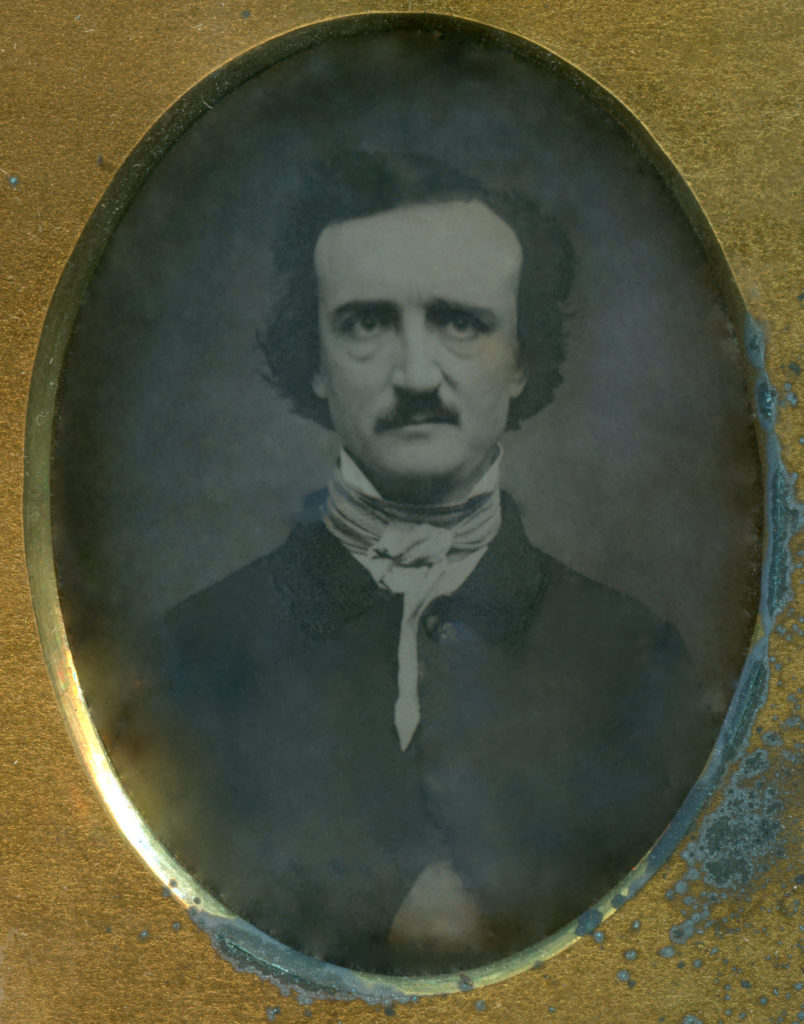Tamerlane
I have sent for thee, holy friar;
But ’twas not with the drunken hope,
Which is but agony of desire
To shun the fate, with which to cope
Is more than crime may dare to dream,
That I have call’d thee at this hour:
Such father is not my theme —
Nor am I mad, to deem that power
Of earth may shrive me of the sin
Unearthly pride hath revell’d in —
I would not call thee fool, old man,
But hope is not a gift of thine;
If I can hope (O God! I can)
It falls from an eternal shrine.
II.
The gay wall of this gaudy tower
Grows dim around me — death is near.
I had not thought, until this hour
When passing from the earth, that ear
Of any, were it not the shade
Of one whom in life I made
All mystery but a simple name,
Might know the secret of a spirit
Bow’d down in sorrow, and in shame. —
Shame said’st thou?
Aye I did inherit
That hated portion, with the fame,
The worldly glory, which has shown
A demon-light around my throne,
Scorching my sear’d heart with a pain
Not Hell shall make me fear again.
III.
I have not always been as now —
The fever’d diadem on my brow
I claim’d and won usurpingly —
Aye — the same heritage hath giv’n
Rome to the Cæsar — this to me;
The heirdom of a kingly mind —
And a proud spirit, which hath striv’n
Triumphantly with human kind.
In mountain air I first drew life;
The mists of the Taglay have shed
Nightly their dews on my young head;
And my brain drank their venom then,
When after day of perilous strife
With chamois, I would seize his den
And slumber, in my pride of power,
The infant monarch of the hour —
For, with the mountain dew by night,
My soul imbib’d unhallow’d feeling;
And I would feel its essence stealing
In dreams upon me — while the light
Flashing from cloud that hover’d o’er,
Would seem to my half closing eye
The pageantry of monarchy!
And the deep thunder’s echoing roar
Came hurriedly upon me, telling
Of war, and tumult, where my voice
My own voice, silly child! was swelling
(O how would my wild heart rejoice
And leap within me at the cry)
The battle-cry of victory!
* * * * *
IV.
The rain came down upon my head
But barely shelter’d — and the wind
Pass’d quickly o’er me — but my mind
Was mad’ning — for ’twas man that shed
Laurels upon me — and the rush,
The torrent of the chilly air
Gurgled in my pleas’d ear the crush
Of empires, with the captive’s prayer,
The hum of suitors, the mix’d tone
Of flatt’ry round a sov’reign’s throne.
The storm had ceas’d — and I awoke —
Its spirit cradled me to sleep,
And as it pass’d me by, there broke
Strange light upon me, tho’ it were
My soul in mystery to steep:
For I was not as I had been;
The child of Nature, without care,
Or thought, save of the passing scene. —
V.
My passions, from that hapless hour,
Usurp’d a tyranny, which men
Have deem’d, since I have reach’d to power
My innate nature — be it so:
But, father, there liv’d one who, then —
Then, in my boyhood, when their fire
Burn’d with a still intenser glow;
(For passion must with youth expire)
Ev’n then, who deem’d this iron heart
In woman’s weakness had a part.
I have no words, alas! to tell
The lovliness of loving well!
Nor would I dare attempt to trace
The breathing beauty of a face,
Which ev’n to my impassion’d mind,
Leaves not its memory behind.
In spring of life have ye ne’er dwelt
Some object of delight upon,
With steadfast eye, till ye have felt
The earth reel — and the vision gone?
And I have held to mem’ry’s eye
One object — and but one — until
Its very form hath pass’d me by,
But left its influence with me still.
VI.
’Tis not to thee that I should name —
Thou can’st not — would’st not dare to think
The magic empire of a flame
Which ev’n upon this perilous brink
Hath fix’d my soul, tho’ unforgiv’n
By what it lost for passion — Heav’n.
I lov’d — and O, how tenderly!
Yes! she was worthy of all love!
Such as in infancy was mine
Tho’ then its passion could not be:
’Twas such as angel minds above
Might envy — her young heart the shrine
On which my ev’ry hope and thought
Were incense — then a goodly gift —
For they were childish, without sin,
Pure as her young examples taught;
Why did I leave it and adrift,
Trust to the fickle star within?
VII.
We grew in age, and love together,
Roaming the forest and the wild;
My breast her shield in wintry weather,
And when the friendly sunshine smil’d
And she would mark the op’ning skies,
I saw no Heav’n, but in her eyes —
Ev’n childhood knows the human heart;
For when, in sunshine and in smiles,
From all our little cares apart,
Laughing at her half silly wiles,
I’d throw me on her throbbing breast,
And pour my spirit out in tears,
She’d look up in my wilder’d eye —
There was no need to speak the rest —
No need to quiet her kind fears —
She did not ask the reason why.
The hallow’d mem’ry of those years
Comes o’er me in these lonely hours,
And, with sweet lovliness, appears
As perfume of strange summer flow’rs;
Of flow’rs which we have known before
In infancy, which seen, recall
To mind — not flow’rs alone — but more
Our earthly life, and love — and all.
VIII.
Yes! she was worthy of all love!
Ev’n such as from th’ accursed time
My spirit with the tempest strove,
When on the mountain peak alone,
Ambition lent it a new tone,
And bade it first to dream of crime,
My frenzy to her bosom taught:
We still were young: no purer thought
Dwelt in a seraph’s breast than thine;
For passionate love is still divine:
I lov’d her as an angel might
With ray of the all living light
Which blazes upon Edis’ shrine.
It is not surely sin to name,
With such as mine — that mystic flame,
I had no being but in thee!
The world with all its train of bright
And happy beauty (for to me
All was an undefin’d delight)
The world — its joy — its share of pain
Which I felt not — its bodied forms
Of varied being, which contain
The bodiless spirits of the storms,
The sunshine, and the calm — the ideal
And fleeting vanities of dreams,
Fearfully beautiful! the real
Nothings of mid-day waking life —
Of an enchanted life, which seems,
Now as I look back, the strife
Of some ill demon, with a power
Which left me in an evil hour,
All that I felt, or saw, or thought,
Crowding, confused became
(With thine unearthly beauty fraught)
Thou — and the nothing of a name.
IX.
The passionate spirit which hath known,
And deeply felt the silent tone
Of its own self supremacy, —
(I speak thus openly to thee,
’Twere folly now to veil a thought
With which this aching, breast is fraught)
The soul which feels its innate right —
The mystic empire and high power
Giv’n by the energetic might
Of Genius, at its natal hour;
Which knows [believe me at this time,
When falsehood were a ten-fold crime,
There is a power in the high spirit
To know the fate it will inherit]
The soul, which knows such power, will still
Find Pride the ruler of its will.
Yes! I was proud — and ye who know
The magic of that meaning word,
So oft perverted, will bestow
Your scorn, perhaps, when ye have heard
That the proud spirit had been broken,
The proud heart burst in agony
At one upbraiding word or token
Of her that heart’s idolatry —
I was ambitious — have ye known
Its fiery passion? — ye have not —
A cottager, I mark’d a throne
Of half the world, as all my own,
And murmur’d at such lowly lot!
But it had pass’d me as a dream
Which, of light step, flies with the dew,
That kindling thought — did not the beam
Of Beauty, which did guide it through
The livelong summer day, oppress
My mind with double loveliness —
* * * * *
X.
We walk’d together on the crown
Of a high mountain, which look’d down
Afar from its proud natural towers
Of rock and forest, on the hills —
The dwindled hills, whence amid bowers
Her own fair hand had rear’d around,
Gush’d shoutingly a thousand rills,
Which as it were, in fairy bound
Embrac’d two hamlets — those our own —
Peacefully happy — yet alone —
* * * * *
I spoke to her of power and pride —
But mystically, in such guise,
That she might deem it naught beside
The moment’s converse, in her eyes
I read [perhaps too carelessly]
A mingled feeling with my own;
The flush on her bright cheek, to me,
Seem’d to become a queenly throne
Too well, that I should let it be
A light in the dark wild, alone.
XI.
There — in that hour — a thought came o’er
My mind, it had not known before —
To leave her while we both were young, —
To follow my high fate among
The strife of nations, and redeem
The idle words, which, as a dream
Now sounded to her heedless ear —
I held no doubt — I knew no fear
Of peril in my wild career;
To gain an empire, and throw down
As nuptial dowry — a queen’s crown,
The only feeling which possest,
With her own image, my fond breast —
Who, that had known the secret thought
Of a young peasant’s bosom then,
Had deem’d him, in compassion, aught
But one, whom phantasy had led
Astray from reason — Among men
Ambition is chain’d down — nor fed
[As in the desert, where the grand,
The wild, the beautiful, conspire
With their own breath to fan its fire]
With thoughts such feeling can command;
Uncheck’d by sarcasm, and scorn
Of those, who hardly will conceive
That any should become “great,” born
In their own sphere — will not believe
That they shall stoop in life to one
Whom daily they are wont to see
Familiarly — whom Fortune’s sun
Hath ne’er shone dazzlingly upon
Lowly — and of their own degree —
XII.
I pictur’d to my fancy’s eye
Her silent, deep astonishment,
When, a few fleeting years gone by,
(For short the time my high hope lent
To its most desperate intent,)
She might recall in him, whom Fame
Had gilded with a conquerer’s name,
(With glory — such as might inspire
Perforce, a passing thought of one,
Whom she had deem’d in his own fire
Wither’d and blasted; who had gone
A traitor, violate of the truth
So plighted in his early youth,)
Her own Alexis, who should plight
The love he plighted then — again,
And raise his infancy’s delight,
The bride and queen of Tamerlane —
XIII.
One noon of a bright summer’s day
I pass’d from out the matted bow’r
Where in a deep, still slumber lay
My Ada. In that peaceful hour,
A silent gaze was my farewell.
I had no other solace — then
T’awake her, and a falsehood tell
Of a feign’d journey, were again
To trust the weakness of my heart
To her soft thrilling voice: To part
Thus, haply, while in sleep she dream’d
Of long delight, nor yet had deem’d
Awake, that I had held a thought
Of parting, were with madness fraught;
I knew not woman’s heart, alas!
Tho’ lov’d, and loving — let it pass. —
XIV.
I went from out the matted bow’r,
And hurried madly on my way:
And felt, with ev’ry flying hour,
That bore me from my home, more gay;
There is of earth an agony
Which, ideal, still may be
The worst ill of mortality,
’Tis bliss, in its own reality,
Too real, to his breast who lives
Not within himself but gives
A portion of his willing soul
To God, and to the great whole —
To him, whose loving spirit will dwell
With Nature, in her wild paths; tell
Of her wond’rous ways, and telling bless
Her overpow’ring loveliness!
A more than agony to him
Whose failing sight will grow dim
With its own living gaze upon
That loveliness around: the sun —
The blue sky — the misty light
Of the pale cloud therein, whose hue
Is grace to its heav’nly bed of blue;
Dim! tho’ looking on all bright!
O God! when the thoughts that may not pass
Will burst upon him, and alas!
For the flight on Earth to Fancy giv’n,
There are no words —— unless of Heav’n
XV.
* * * * *
Look ’round thee now on Samarcand,
Is she not queen of earth? her pride
Above all cities? in her hand
Their destinies? with all beside
Of glory, which the world hath known?
Stands she not proudly and alone?
And who her sov’reign? Timur he
Whom th’ astonish’d earth hath seen,
With victory, on victory,
Redoubling age! and more, I ween,
The Zinghis’ yet re-echoing fame.
And now what has he? what! a name.
The sound of revelry by night
Comes o’er me, with the mingled voice
Of many with a breast as light,
As if ’twere not the dying hour
Of one, in whom they did rejoice —
As in a leader, haply — Power
Its venom secretly imparts;
Nothing have I with human hearts.
XVI.
When Fortune mark’d me for her own,
And my proud hopes had reach’d a throne
[It boots me not, good friar, to tell
A tale the world but knows too well,
How by what hidden deeds of might,
I clamber’d to the tottering height,]
I still was young; and well I ween
My spirit what it e’er had been.
My eyes were still on pomp and power,
My wilder’d heart was far away,
In vallies of the wild Taglay,
In mine own Ada’s matted bow’r.
I dwelt not long in Samarcand
Ere, in a peasant’s lowly guise,
I sought my long-abandon’d land,
By sunset did its mountains rise
In dusky grandeur to my eyes:
But as I wander’d on the way
My heart sunk with the sun’s ray.
To him, who still would gaze upon
The glory of the summer sun,
There comes, when that sun will from him part,
A sullen hopelessness of heart.
That soul will hate the ev’ning mist
So often lovely, and will list
To the sound of the coming darkness [known
To those whose spirits hark’n] as one
Who in a dream of night would fly
But cannot from a danger nigh.
What though the moon — the silvery moon
Shine on his path, in her high noon;
Her smile is chilly, and her beam
In that time of dreariness will seem
As the portrait of one after death;
A likeness taken when the breath
Of young life, and the fire o’ the eye
Had lately been but had pass’d by.
’Tis thus when the lovely summer sun
Of our boyhood, his course hath run:
For all we live to know — is known;
And all we seek to keep — hath flown;
With the noon-day beauty, which is all.
Let life, then, as the day-flow’r, fall —
The trancient, passionate day-flow’r,
Withering at the ev’ning hour.
XVII.
I reach’d my home — my home no more —
For all was flown that made it so —
I pass’d from out its mossy door,
In vacant idleness of woe.
There met me on its threshold stone
A mountain hunter, I had known
In childhood but he knew me not.
Something he spoke of the old cot:
It had seen better days, he said;
There rose a fountain once, and there
Full many a fair flow’r rais’d its head:
But she who rear’d them was long dead,
And in such follies had no part,
What was there left me now? despair —
A kingdom for a broken — heart.
Edgar Allan Poe
Originally Published in 1827
Image by Edmund Dulac
